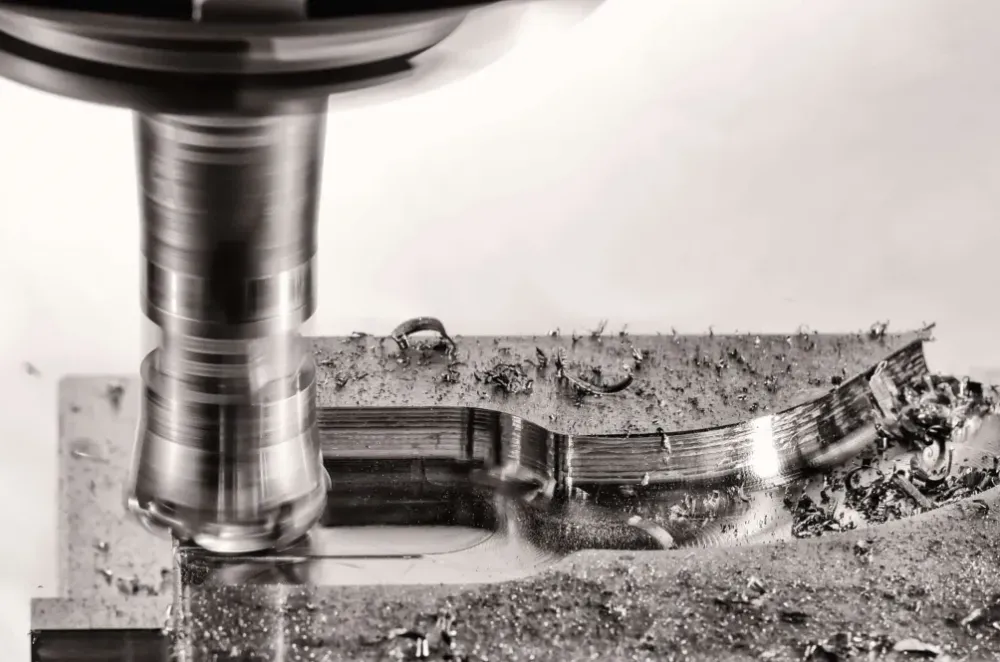Want to test the system at your production?
Get started for freeContract Manufacturers - How To Stay Competitive in 2025
Why Production Monitoring Systems Are a 2025 Must-Have for Contract Manufacturers
In 2025, the industry will face a tipping point: adopt advanced digital tools or risk being left behind. Here’s why implementing a production monitoring system is a great survival strategy.
The Growing Challenges for Contract Manufacturers
Today’s manufacturers juggle complex demands:
- Unpredictable demand spikes from clients in industries like aerospace, automotive, and medical devices.
- Rising operational costs due to inefficiencies, waste, or unplanned downtime.
- Stricter compliance requirements and quality standards.
- Labor shortages straining productivity and scalability.
Without real-time visibility into operations, these challenges lead to missed deadlines, eroded margins, and dissatisfied customers.
The 2025 Deadline: Adapt or Lose Ground
Industry analysts predict that by 2025, over 70% of manufacturing workflows will rely on data-driven technologies. Clients will prioritize partners who can guarantee transparency, agility, and precision. Here’s what’s at stake:
-
Competitive Disruption
Tech-savvy competitors leveraging IoT, AI, and cloud analytics will dominate bids by offering faster turnaround times and lower costs. -
Client Expectations
Buyers increasingly demand live updates, predictive insights, and proof of compliance. Manual reporting won’t cut it. -
Regulatory Shifts
Stricter sustainability and traceability mandates will require granular production data to avoid penalties or lost contracts.
How Production Monitoring Systems Solve These Challenges
A modern production monitoring system acts as the central nervous system of your factory. Here’s how it transforms operations:
1. Real-Time Visibility, Smarter Decisions
- Track machine performance, cycle times, and output across multiple lines or facilities from a single dashboard.
- Identify bottlenecks instantly - no more waiting for end-of-shift reports.
2. Predictive Maintenance to Slash Downtime
- AI-driven analytics forecast equipment failures before they happen, reducing unplanned downtime by up to 50%.
- Extend asset lifespans and avoid costly emergency repairs.
3. Quality Control at the Source
- Detect deviations in real time using IoT-enabled sensors, minimizing scrap and rework.
- Automatically log compliance data for audits and client reviews.
4. Scalability for New Business
- Prove your capability to handle high-mix, low-volume orders with precision.
- Use historical data to negotiate better contracts or take on last-minute client requests confidently.
The Cost of Waiting
Procrastination is expensive. Manufacturers who delay adoption will face:
- Lost bids to tech-equipped rivals.
- Higher operational costs from inefficiencies and reactive fixes.
- Eroded client trust due to inconsistent delivery or quality issues.
Meanwhile, early adopters will leverage their systems to:
- Ensure the best contracts with data-backed guarantees.
- Reduce waste and energy use, aligning with ESG goals.
- Upskill workers to focus on value-added tasks instead of manual data entry.
Preparing for success in 2025 starts today
Implementing a production monitoring system isn’t just about installing sensors or software—it’s about future-proofing your business. To stay ahead:
- Audit your workflows to pinpoint inefficiencies.
- Partner with experts to design a scalable solution.
- Train teams to embrace data-driven decision-making.
The clock is ticking. Production monitoring is the baseline for doing business, especially doing it successfully.
Ready to increase your OEE, get clearer vision of your shop floor, and predict sustainably?
Other articles
While both involve structured review and analysis, their objectives, scope, and outcomes differ significantly. This article exploring this topic further.
